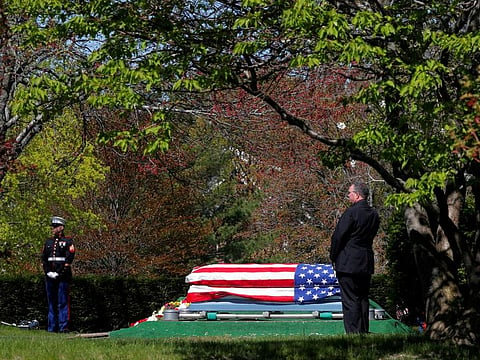Political turmoil, virus surge may push US into deep crisis
Biden needs access to official briefings to prepare his team for the challenge ahead

Early last week, a Boston-based epidemiologist made a telling remark on the state of coronavirus pandemic in the United States. “The whole country is on fire,” Ellie Murray of Boston University School of Public Health said on Tuesday, painting a grim picture of the health crisis that has engulfed the entire country. On the same day, fresh data by Johns Hopkins University showed a shocking average increase of 37 per during the week preceding November 17.
The United States has more than 11 million diagnosed infections and over 250,000 deaths, both statistics highest in the world. During the first 10 days of November, the country reported a million infections and last week an average daily spike of 167,400 cases. The surge prompted the nation’s top public health agency on Thursday to issue dire warnings about uncontrollable outbreaks and pleaded with Americans not to travel for Thanksgiving and avoid mixing with people from outside their household. Also, California, a state of 40 million people, imposed a month-long overnight curfew from 10pm to 5am until December 21.
At this moment, the US needs to marshal resources required to contain the surge and evolve a national vaccination plan acceptable to all the statesGulf News
These warnings come at a time when hospitals across the country are squeezed by patients filling up beds and health workers falling ill themselves. They also come at a time when the country is in the middle of a historic political turmoil, a crisis that threatens to disrupt and derail, even if temporarily, the federal command and control structure. The transition period crisis, otherwise a smooth affair, has created an unprecedented situation where the incumbent president appears less interested in tackling the health crisis and his successor has no authority to intervene.
The vaccine manufacturers seem to have performed their job well as at least two companies — Pfizer and BioNTech — are seeking immediate authorisation for emergency use. The manufacturers are optimistic that early lot of the shots will be ready by next month if approvals come on time. At this moment, the country needs to marshal resources required to contain the surge and evolve a national vaccination plan acceptable to all the states.
The Trump administration must provide the incoming administration access to official briefings so that Biden is ready with a new team to perform two critical functions that will require his immediate attention when he takes over on January 20 — contain the surge and prepare the country for mass inoculation.



